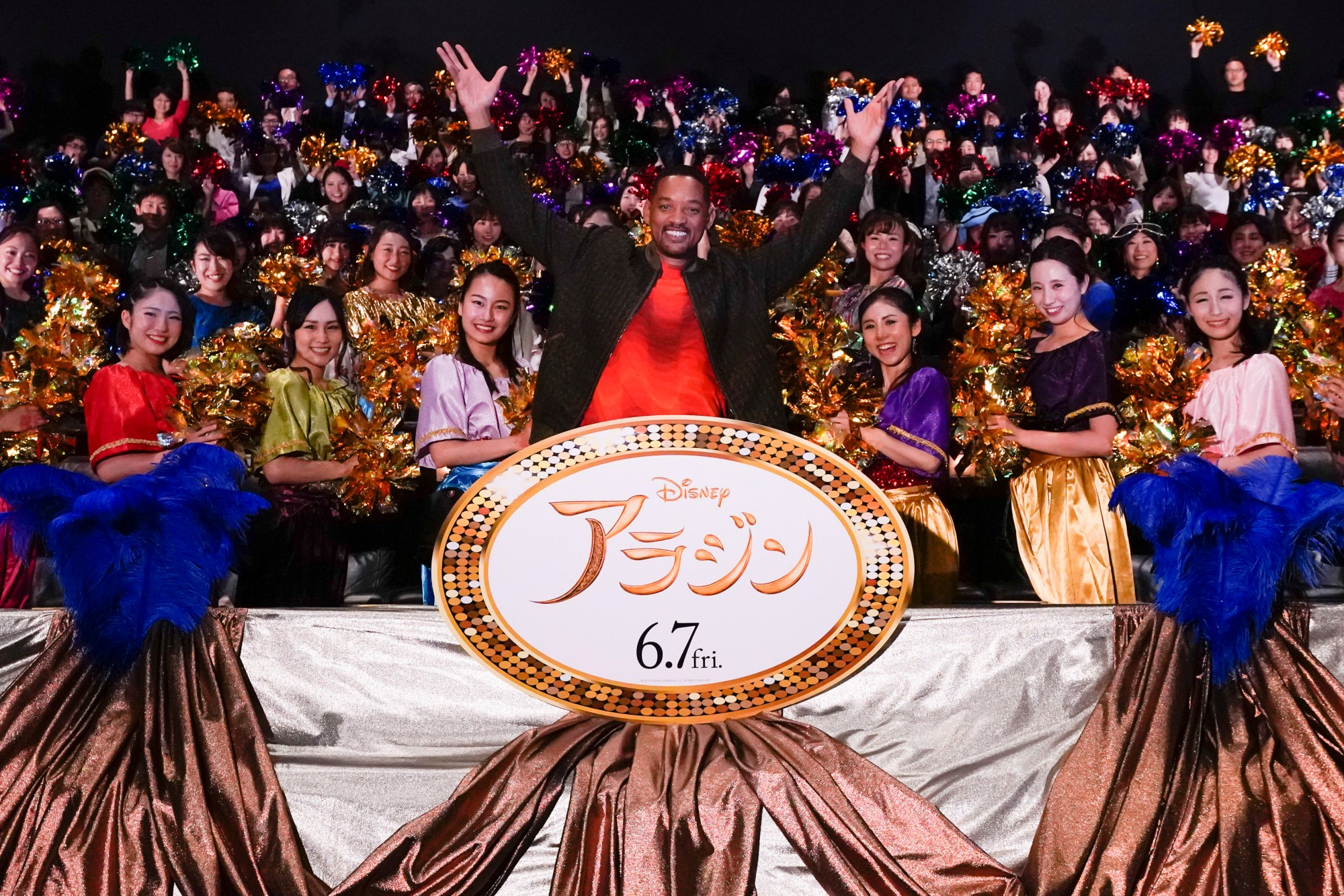
- Industry
Hollywood in Japan
One in an occasional series exploring the state of Hollywood films in global markets.
While 2019 has been an exceptional year for Hollywood films in Japan, the third-largest movie market in the world ceded the number two spot to China in 2013. Moviegoing in Japan has increased 16% over last year, but Hollywood still hasn’t regained the dominance it had over the Japanese box office for decades.
While Aladdin leads the list of top box office films for 2019 with $111 million, and the ubiquitous Avengers: Endgame is No. 5 with $55 million, the No. 2 film is the Japanese animated Weathering with You, which has been named the country’s Oscar entry and could quite possibly overtake the Disney film. It has grossed $101 million so far and is still playing a month after its release.
Box office prognosticators see both good and bad news for Japan as a Hollywood film market. Since 2011, its population has been shrinking. Life expectancy is high, and deaths outnumber births. Its population today is 126 million; by 2050 at the current trend, it is estimated to fall to 97 million. But while unemployment is low and the job market is tight, the Japanese have more leisure time and more disposable income, and more is being spent on cinema admissions, even though streaming platforms are doing well.
Successful films tend to remain in theaters for weeks. Bohemian Rhapsody was a big hit with karaoke singalongs and cosplay at its screenings. It topped the box office charts at No.1 two months after its opening last November, leading the charts for two weeks in January, according to The Hollywood Reporter. It ran for 27 weeks and earned $122 million. Somewhat surprisingly, it shows up on Japan’s all-time box office winners at No.16.
Toy Story 4 has been playing since July and has made $86 million so far. The Lion King made $9 million in its first three days.
But no-brainers like Pacific Rim, which made most of its money overseas, did not do well in Japan despite its anime-inspired monsters. Neither did The Wolverine with its samurai swordplay, each earning around $10 million.
There are some factors that work against the Hollywood industry in Japan. Aside from a few exceptions, Hollywood movies don’t open day and date, a source of frustration to a lot of young film fans who fret over spoilers on the internet. On the website Quora where a lot of complaints have been posted on the topic, one fan grumbled, “Japan is number 1 in regards to the slowest release dates.” Some of them theorize it’s the few cinemas per capita, a dwindling population and the very expensive movie tickets (about $20) that is the problem. Most Japanese consumers want movies that are already hits in other countries with advertising headlines like “the world laughed” and “No.1 in the USA” to make them shell out the bucks, though younger fans are relying more on social media platforms for buzz about upcoming releases.
The small number of theaters (about 3,500) also factor into the carefully planned release dates in the country, taking into account local releases and holidays. Elaborate marketing materials like pamphlets describing the movie and containing director interviews and backstage stories are prepared. All this takes a careful and well-planned marketing strategy that is time-consuming.
Another reason for delayed releases (some movies can take up to six months after their initial release in the US), could be the strict piracy laws of Japan. Warnings are posted before screenings and the consequences of pirating material are severe, including heavy fines and even prison time. A severe anti-downloading law for digital pirating was supposed to go into effect January 1, 2020, but was withdrawn from consideration by the Diet under severe opposition and seems to be shelved. It proposed fines of up to two million yen ($18,000) and two years in prison for all kinds of digital piracy including posting screenshots of copyrighted materials.
Cinema chains do their best to entice customers, offering discounted tickets for ‘Happy Days’ (the first day of the month), ‘Ladies’ Days,’ ‘Married Couple Days’ and ‘Cinema Days.’ Most popular foreign imports are dubbed or subtitled. Beer and wine are sold along with popcorn and other snacks, and there are souvenir stands in lobbies to sell toys and posters. Some cinemas even offer pillows and blankets.
But the domestic film industry has been thriving in recent years, unlike in a lot of other countries. Nippon.com quotes a Toho executive, “There is more investment in Japanese cinema these days thanks to the involvement of television networks, publishers, and advertisement agencies. This has made it possible for us to domestically produce the kind of films that people want to see. The joint investment from television networks and publishers has brought the added benefit of opportunities to more widely promote films; this has been a key factor behind box-office hits.”
The all-time foreign box office champ in Japan remains 1998’s Titanic which grossed $246 million and comes in at No.2 behind 2001’s Spirited Away ($291 million). 2014’s Frozen is No. 3 on the charts with $240 million.

